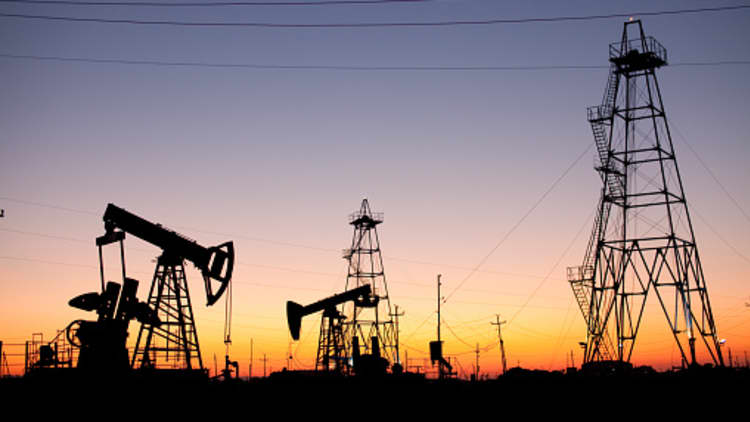OPEC members meeting in Vienna this week are likely to leave the Austrian capital without agreeing on a path forward for their 18-month-old policy of limiting oil output, Iran's energy minister told reporters on Tuesday.
The 14-member oil cartel is not scheduled to make a decision until Friday, but the gathering is already shaping up to be one of the most contentious in years. Influential producers such as Saudi Arabia and non-OPEC member Russia are pushing for output hikes, while countries with little ability to pump more — including Iran, Iraq and Venezuela — are lobbying against any change in current policy.
"Every decision in OPEC needs unanimity, and I don't believe in this meeting we can reach agreement," Iranian Oil Minister Bijan Zanganeh told reporters on Tuesday.
I think it's going to be a bad meeting. I don't see how they get an agreement. The probability is about zero.Ed MorseCitigroup global head of commodity research
The members' vastly different relationships with the U.S. government are also running through the meeting like a fault line. President Donald Trump has taken the rare step of publicly inserting himself into OPEC policymaking, complaining in a pair of tweets that OPEC is to blame for oil prices recently hitting 3½ year highs.
The Trump administration also reportedly asked top OPEC producer Saudi Arabia to offset potential disruptions to Iranian oil exports by pumping more. Washington made the request just before Trump pulled out of the Iran nuclear deal and restored sanctions on Tehran, the Saudis' chief regional rival, Reuters reported.
Zanganeh said it was Trump who had created difficulty for the oil market by imposing sanctions against Iran and Venezuela yet he now expects OPEC to deal with the consequences by pumping more.
"President Trump thinks that [he] can order to OPEC and instruct to OPEC to do something," he said. "It's not fair, I think, and OPEC is not a part of the Department of Energy of the United States."
OPEC reached a historic agreement with Russia and other nonmembers in 2016 to keep 1.8 million barrels per day off the market. That arrangement has cleared a global glut of crude oil that sent oil prices spiraling from more than $100 a barrel in 2014 to less than $30 a barrel in 2016. International benchmark has since rebounded to about $75 a barrel.

But renewed Iranian sanctions and the continued drop in Venezuela's output has convinced some OPEC members that producers must start easing production caps.
Earlier in the evening, OPEC Secretary General Mohammed Barkindo told CNBC he's "very hopeful" OPEC members will reach consensus by the time they meet formally at the end of the week.
But Citigroup's closely followed global head of commodity research, Ed Morse, said he thinks it will be very difficult for the oil producers to clinch an agreement in Vienna.
"I think it's going to be a bad meeting," he told CNBC on the sidelines of a press conference with Barkindo. "I don't see how they get an agreement. The probability is about zero."
Russian energy minister Alexander Novak is seeking an increase of 1.5 million bpd, but Saudi Arabia appears interested in a hike of only 500,000-600,000 bpd. Meanwhile, Iran and Venezuela do not want an increase at all.
To be sure, it is not unusual for oil producers to stake out maximalist positions ahead of a high-stakes meeting.
"I think at this point right now, you can think about what Novak and the Russians are doing as throwing out very large numbers as really more of a negotiating position to get more market share," Jeff Currie, head of commodities research at Goldman Sachs, told CNBC's "Power Lunch" on Tuesday.
A source familiar with the state of negotiations in Vienna told CNBC that OPEC members are in the process of horse trading ahead of the official decision.



